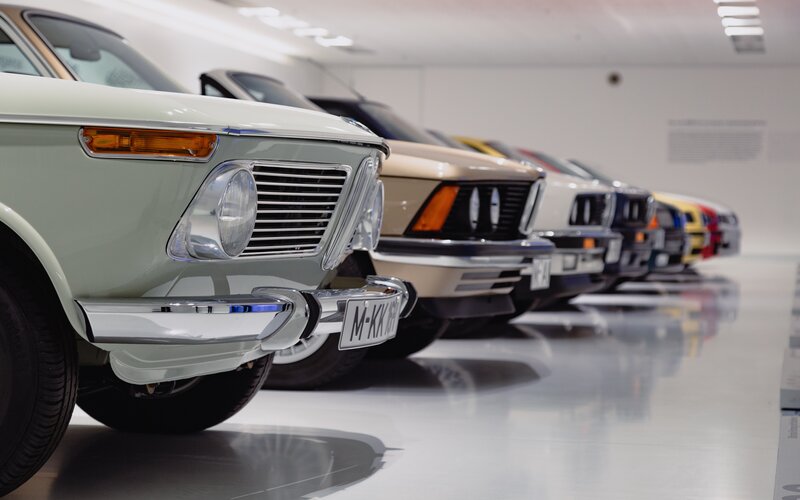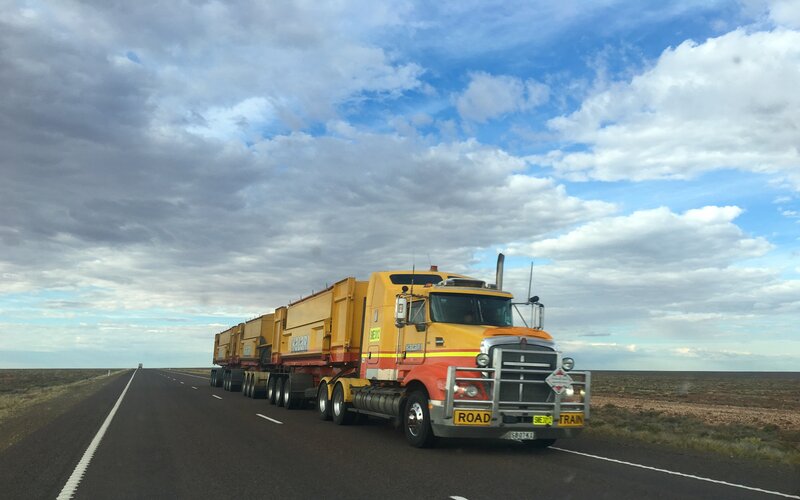If you’ve got a classic car or older vehicle - usually 25+ years old - you can likely put it on club or ‘special interest’ registration. These special registration types can offer a heavy discount on the yearly registration fee (potentially including any CTP, or compulsory third party insurance). But there’s one proviso - there are heavy restrictions on how you use your car, and you may even need to sign up to a car club, hence the name. So, is it worth it?
In the market for a car? The table below features car loans with some of the lowest fixed and variable interest rates on the market.
| Lender | Car Loan | Interest Rate | Comparison Rate* | Monthly Repayment | Interest Type | Vehicle Type | Maximum Vehicle Age | Ongoing Fee | Upfront Fee | Total Repayment | Early Repayment | Instant Approval | Online Application | Tags | Row Tags | Features | Link | Compare | Promoted Product | Disclosure |
|---|---|---|---|---|---|---|---|---|---|---|---|---|---|---|---|---|---|---|---|---|
5.99% p.a. | 7.12% p.a. | $580 | Variable | New | No Max | $8 | $400 | $34,791 |
| Promoted | Disclosure | |||||||||
6.52% p.a. | 6.95% p.a. | $587 | Fixed | New, Used | No Max | $0 | $350 | $35,236 |
| Promoted | Disclosure | |||||||||
6.57% p.a. | 7.19% p.a. | $588 | Fixed | New | No Max | $0 | $250 | $35,278 |
| Promoted | Disclosure |
Is car club rego worth it?
We’ve taken a look at the various states' and territories' policies around club rego, what hoops you need to jump through and what it costs compared to regular registration. Regular registration can cost many hundreds of dollars and the traffic authorities in each state aren’t going to let you skirt around things so easily!
Note: Details were correct as of June 2021.
Queensland
Called the ‘special interest vehicle concession’ scheme, Queensland club rego has clearly defined restrictions. Eligible vehicles include:
- Vehicles that are at least 30 years old
- Heavy buses that are at least 25 years old
The guide also stipulates that the vehicle must not be used for general purposes e.g. commuting to and from work, getting groceries and so on. ‘For hire or reward’ is also out of line - so charging $200 to run Stacey to the school formal is also out of question.
-
Regular registration on a six cylinder vehicle including CTP amounts to upwards of $930 for 12 months, as opposed to around $220 for club rego.
The vehicle can only be used in special situations, such as “participating in rallies and events” organised by a car club or for particular ceremonies. So, you probably can’t just text your mate Steve and ask if he wants to go cruising in your matching 1987 BMW 328i’s at the drop of a hat.
New South Wales
For a car to be registered under the ‘historic’ or ‘classic’ vehicle schemes in NSW, it must be aged 30 years and older and you must be a member of a recognised club. The car can usually only be used for events organised by the affiliated clubs, so long as an official invitation has been tendered. However, a recently introduced rule allows you to operate your classic or historic car for 60 days of general road use per year, but you must carry a log book and log these trips when you do.
In NSW, regular registration and CTP (green slip) are completed separately. For vehicles between 1,505kg and 2,504kg, private rego is nearly $500 plus a yearly fee of $60-odd. And green slips vary anywhere from around $400 to more than $500.
-
Compare this with club rego - you’ll need to pay about $70-odd in plate and admin fees, plus any CTP (which is obtained separately and varies).
Victoria
For a car to qualify for the Victorian club permit scheme, cars must be older than 25 years. You must also join a VicRoads-approved club and carry a logbook in your car at all times. The logbook is used in conjunction with a 45 or 90 day permit - this is 45 or 90 times you use your car, which must be logged.
-
The 90-day total fee is $191.90, while the 45-day fee is $117.60, and these fees include the TAC, permit fee, plate fee and logbook fee.
Compared to many other states, this is a much simpler and more liberal system. Regular registration is this way, too, with a flat fee of $834.80 per year for metropolitan areas, $779.80 for outer metro, and $716 for rural areas.
Tasmania
In Tasmania your ‘special interest’ vehicle must be 30 years or older, as well as in ‘exceptional condition’ inside and out (original, restored or modified). Perhaps the most noteworthy thing is that you don’t need to be part of any club. Instead, you can purchase varying registration lengths.
-
'Special Interest' vehicles under three tonnes with 3-12 cylinders across 104 days in a 12 month period costs $205.39 to establish a new vehicle, or $183.52 to renew.
Compared to the regular registration of more than $600 for a six cylinder vehicle, it’s a lot cheaper. However, you must log all your days in a logbook. Tasmania is looking pretty liberal, but one major caveat is that you must continue to have another fully registered vehicle in your name. So your old Torana can’t be your only vehicle.
South Australia
SA fairly recently made changes to its special interest vehicles scheme. Cars older than 30 years, vehicles that are left hand drive and street rods made before 1949 are eligible, but you must be a financial member of a car club. Rather than offer a special registration bracket, with these vehicles, SA has waived the registration fee. Instead, you’ll just have to pay CTP, administration fees and a reduced emergency services levy.
-
For reference, full registration on a six cylinder car costs about $790 for a year in a metro area, while if you have an eligible classic car you’ll just pay CTP, which is about $200 across four different providers, plus any admin fees.
The simplified club rego process includes 90 days' use across a one-year period of registration. You also can’t drive for a fee, like for a school formal, for example.
Western Australia
Things are a little different in the west. In WA you pay per 100kg of tare mass. For a regular motor vehicle it’s $23.64 per 100kg. So, if you have a 1,500kg vehicle, that’s $354.60, plus any admin fees. This figure includes CTP. While there is no particular special interest vehicle scheme in place yet, the McGowan Government has introduced a ‘Concessions for Classics’ scheme.
-
Under the scheme, classic car owners will receive up to a 100% discount on the licence (registration) fees.
- Classic car owners still need to pay third party (CTP) insurance, albeit at a reduced rate.
If you have a vehicle older than 30 years that is also registered to a Department of Transport approved club, you could be eligible. Vehicles would be limited to use solely for car club shows and events.
Additionally, WA also has a 'Code 404' concessional licence scheme, and no it's not when your web browser isn't working.
Under the Code 404 scheme, any vehicle aged 25 years or older may be eligible. Vehicles must be unmodified, and fit into one of four criteria - 'Veteran', 'Vintage', 'Post-Vintage', and 'Invitation Class'. Owners must be a member of a 404-approved club.
404 licensing reportedly costs $73 per year, and there is no logbook required, but users may face stricter eligibility criteria.
Australian Capital Territory
As part of the ‘veteran, vintage and historic' (VVH) scheme, if you’re part of an eligible car club you could get a hefty discount on registration if your car is 30 years or older. Under the VVH, you can participate in events organised or approved by eligible clubs, run ‘occasional’ test runs up to a 40km radius, and for use in specific occasions (such as a wedding) if you obtain permission from the car club first. There is also a maximum mileage limit of 2,000 miles or 3,000km driven within the ACT per year.
-
VVH registration could cost anywhere from $117 to $125 per year based on your CTP provider.
Compare this with regular registration: if your engine size is over 600cc, regular registration in the ACT could cost anywhere from the low $600 to the low $700 mark (including CTP) per year based on your CTP or ‘accident injuries insurance’ provider.
Northern Territory
The Northern Territory is a little more opaque with club rego pricing. However, like many other states, you’ll need to have membership to a recognised car club to be eligible. In the NT, there are only ten recognised car clubs, with a focus on classic Holdens and Fords. Your vehicle also needs to be at least 30 years old or a recognised ‘street rod’.
-
While regular registration is slightly cheaper if you have a four cylinder vehicle under 3,000cc (3.0L), a six cylinder vehicle between 3,501cc and 4,000cc, for example, costs more than $900 per year to register including CTP.
-
Compare this with club registration, which is about $127 for 12 months, including CTP.
Under car club rego, there are restrictions on how you can use your vehicle. You can’t commute to and from work, or use it for commercial enterprise i.e. school formals, for example. However, limited personal use is permitted. You also must keep a logbook of all your road travel, and also only drive your vehicle on-road for approved activities. Under the logbook, you can also only use the vehicle for up to 90 days per annum - 60 for club events, and 30 for maintenance, test driving and restricted personal use purposes.
Other considerations
Aside from wondering how you can actually register your vehicle under club registration and save money, there’s a few other factors to consider before biting the bullet on that series-one Mustang.
-
Insurance: Certain insurers, such as Shannons, specialise in classic car insurance, and might offer cheaper insurance if your car is on club rego and thus not being used much. On the other hand, if you’ve insured your car under certain conditions and you get in a crash while breaking those conditions, your insurance may be voided - so travel wisely!
-
Finance: Classic cars can get expensive. If you do not have the cash, finance is a tempting proposal. However, most lenders do not offer secured car loans for vehicles older than 12 years. You may be able to get a personal loan, but the compromise is likely a much higher interest rate.
If you’re selling your vehicle, in many states it’s not possible to transfer ownership of club registration and plates. You’ll have to de-register your car from club plates, and re-register on normal registration, or sell the car unregistered and let the buyer figure it out (they’ll need to either get temporary registration or tow the car to get it home). In states that do allow transfers, both parties will need to be part of an eligible club.
Savings.com.au's two cents
Now that you’ve seen the hoops you need to jump through, you’re probably wondering if club registration is even worth it. And the answer to that is… it’s up to you to decide.
If you’re a legitimate classic car enthusiast, wherever you live, the hoops you need to jump through may be worth it. However, if you’re just trying to cheap out on registering your mum’s 1993 Ford Laser to drive to school, you’ll have to reassess.
With that said, certain states are more liberal than others with how you can use your club-registered car. After all, it’s only natural after having poured money and sweat into a classic car to go for an easy cruise without having to jump through eleventy hoops.
-
Among the more liberal states, you can use your car for personal use for around 90-100 days a year - this works out to be just under twice per week, which sounds reasonable.
Arguably the most draconian state for car club rego is Queensland, where at present you can’t even use a logbook to drive your car outside of club events. No matter what state you live in, it’s important to read up on the rules of classic car registration, so you’re not caught unawares with both traffic authorities and your insurer.
Article first published 9 July 2020, last updated 14 June 2021.
Photo by Wade Lambert on Unsplash






 Denise Raward
Denise Raward
 Harry O'Sullivan
Harry O'Sullivan

 Jacob Cocciolone
Jacob Cocciolone


